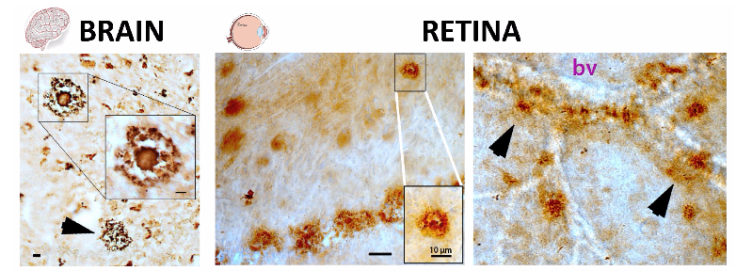Study: Eye Test Could Predict Alzheimer's Disease Years In Advance

An eye test could predict whether someone could have Alzheimer’s disease years in advance, according to a recent study.
Researchers from Cedars-Sinai and company NeuroVision Imaging found the disease affects the retina, which is the back of the eye, in a similar way to how it impacts the brain. Through this discovery, researchers conducted a noninvasive eye scan in an effort to detect key signs of Alzheimer’s before patients began experiencing symptoms of the disease.
The study, which was published Tuesday in JCI Insight, said a high definition eye scan was able to see the plaque in the retina, which correlated with the amount in the brain. The plaque is a buildup of toxic proteins called amyloid-beta deposits, which are key signs of Alzheimer’s. Build up in the brain may occur as early as two decades before people begin to experience signs of the disease.
The study is good news in the medicine field, since the technology will be able to detect the disease years in advance, before people symptoms begin.
"Now we know exactly where to look to find the signs of Alzheimer's disease as early as possible," said Dr. Yosef Koronyo, on of the study’s authors.
Dr. Keith L. Black, the chair of Cedars-Sinai's Department of Neurosurgery who co-led the study, said the new research offers hope for early detection of the disease that could lead to effective intervention.
"Our hope is that eventually the investigational eye scan will be used as a screening device to detect the disease early enough to intervene and change the course of the disorder with medications and lifestyle changes," said Black in a statement.
Previously, the only way to officially diagnose the disease was to analyze a person’s brain after he or she had passed away. Most recently, health professionals have conducted positron emission tomography (PET) scans of the brains of living people to see evidence of Alzheimer’s. However, those scans are costly, and are invasive, since patients have to be injected with radioactive tracers.

For the study, researchers analyzed 16 people with Alzheimer’s disease. The patients drank a solution that contained curcumin, which causes the plaque in the retina to light up, allowing it to be detected by the eye scan. Those patients were then compared to a group of younger cognitively normal individuals, researchers said.
“The findings suggest that the retina may serve as a reliable source for Alzheimer's disease diagnosis," said the study's lead author, Dr. Maya Koronyo-Hamaoui in a statement. "One of the major advantages of analyzing the retina is the repeatability, which allows us to monitor patients and potentially the progression of their disease."
More than five million Americans have Alzheimer's disease, and the figure is expected to triple by 2050, according to the Alzheimer's Association. The disease is the 6th leading cause of death in the country, according to the Centers for Disease Control and Prevention.
Earlier this year, the CDC announced deaths from Alzheimer’s disease spiked by 55 percent in just 15 years. In 2014, there were more than 93,000 deaths from Alzheimer’s disease in the U.S., compared to 44,500 in 1999. Scientists said the higher numbers are likely due to better diagnosis of the disease, an aging population, the increased willingness among health professionals to attribute death to the disease, as well as the decline in other deaths, like heart disease and cancer, which allow people to live long enough to die of Alzheimer’s.
For the recent study, Cedars-Sinai and NeuroVision also worked with the Commonwealth Scientific and Industrial Research Organisation, University of Southern California, and University of California, Los Angeles.
© Copyright IBTimes 2025. All rights reserved.



















